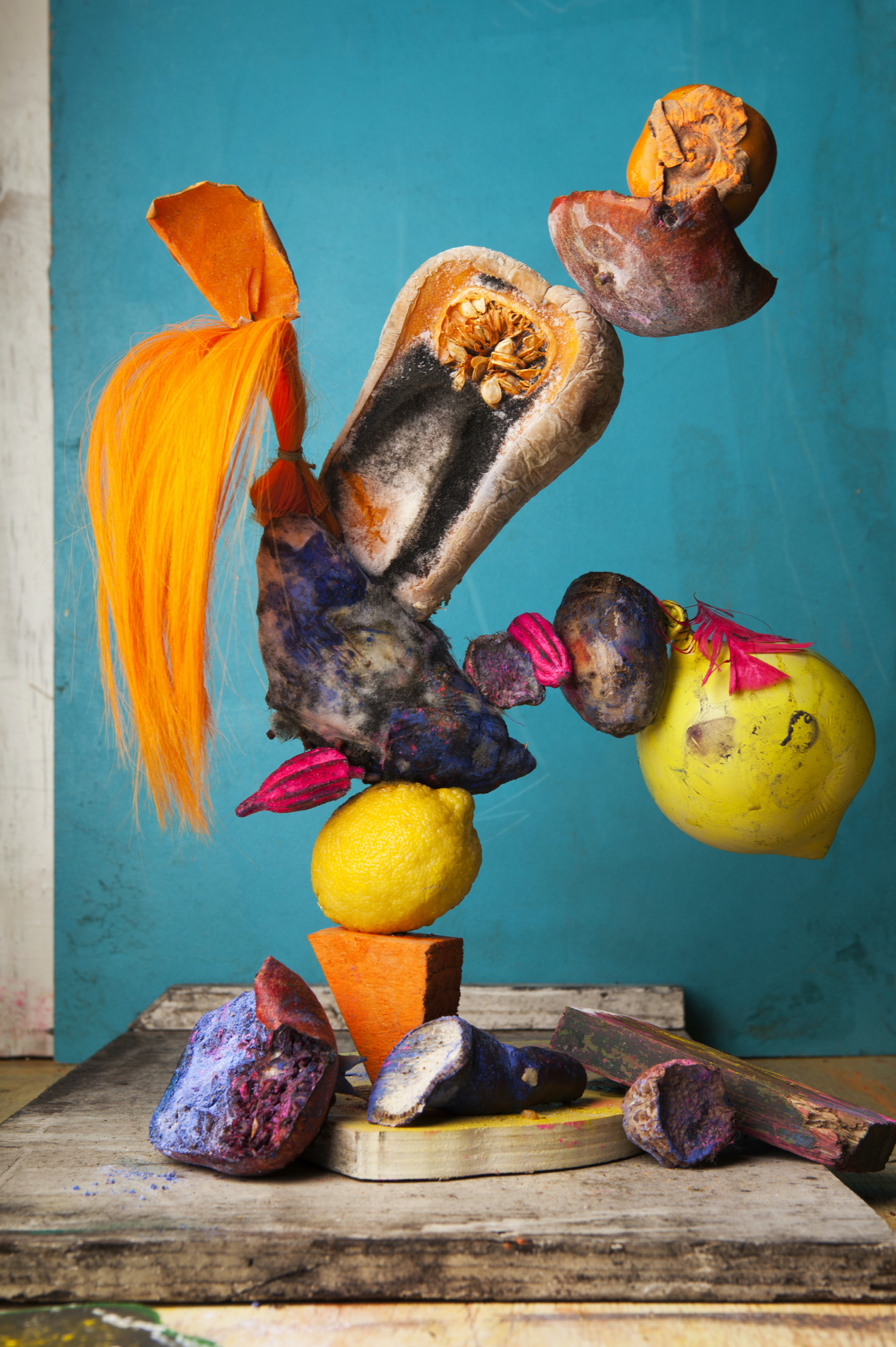
Lorenzo Vitturi, Hairy Orange, yellow balloons and rotten camote #2, 2013, Giclee print on Hahnemühle bamboo paper
© Lorenzo Vitturi, courtesy of Flowers Gallery
“Our Carnal and Earthly Constitution”: Corine Pelluchon’s Philosophy of the Body
How would our perception of ethics and politics change if we were to understand the body as the starting point of our experience? If we would put the materiality of our senses first, beating back the pretension that consciousness is at the origin of all sense?
In her book “Nourishment”, published in February 2019 (Bloomsbury) and now available in its German translation “Wovon wir leben” (wbg Publishing), Corine Pelluchon develops an ethics that insists on the corporeality of the subject, arguing that human beings are, fundamentally, a body among bodies, immersed in a sensible world, ever-connected, vulnerable. That “being” is an impoverished description of human existence and should be replaced by “being-in-the-world”. And that this broader understanding of existence fills a gap left by many theories of freedom: men’s duties towards other living beings, human or nor, already born or not.
Pelluchon – who teaches moral philosophy at the Université Gustave Eiffel (Marne-la-Vallée) and will be a Fellow of THE NEW INSTITUTE from the fall of 2021, where she is co-creator of the program “The Foundations of Value and Values” – outlines an existential philosophy of “living from and living with”, broadening the scope of applied ethics. Her analysis does not center around an atomized, immaterial subject but, rather, around the fundamental interweaving of “our carnal and earthly constitution.”
Hence, Pelluchon provides an embedding ethics, stressing that being human essentially means partaking in a community of dependants, a collective of living beings that remains alive because it sustains what it lives from. Then, her notion of “living from and living with” denotes the necessity of granting this community of sensing beings, human and non-human, present and future, with due consideration in daily decision-making. As Pelluchon writes: “A philosophy of ‘living from’ connects existence and ecology and thinks of it as the wisdom of inhabiting the earth.”
This thought is as obvious as it is fundamental, in times in which humankind’s habitat so drastically reacts to the disconnect between human existence and ecology. Monstrous tornadoes, scorching hot summers, devastating floods – nature no longer plays along, it goes on strike. It is no longer the untouched, timeless stage on which civilization builds its history of progress, quite the contrary: it confronts a seemingly boundless world with its finiteness.
“If one asks about what we live from, it is no longer meaningful to contrast the ecological end of the world with the empty wallet at the end of the month, or humanism with animal protection”, writes Pelluchon. Because these apparent dualisms exist only as long as the liberty on which our lives operate remains blind for the basis it depends upon: To sustain, what we live from.
It is Pelluchon's utopia to leave these dualisms behind; the opposite, the status quo, she concludes, might lead us into a dark future.